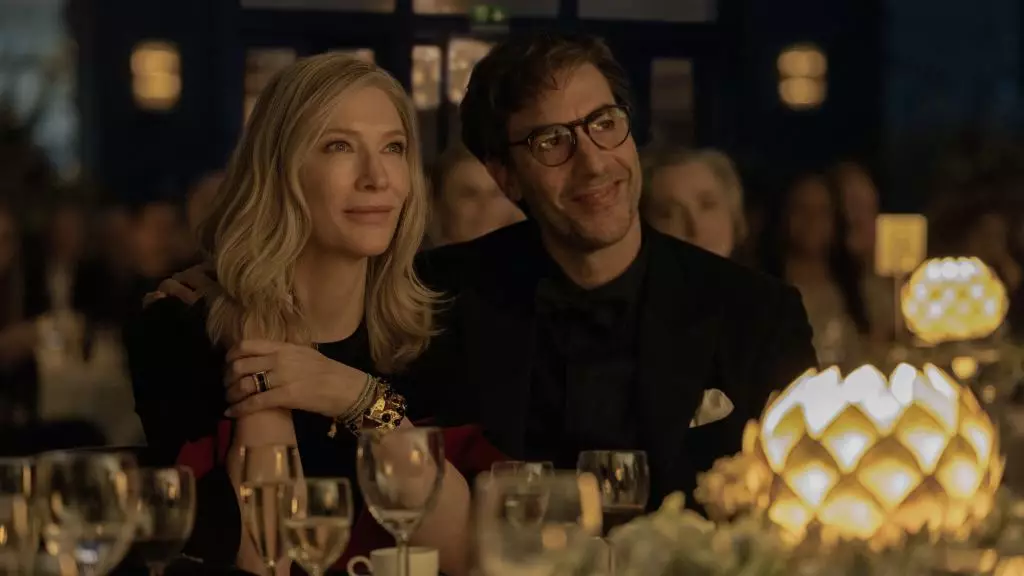David O. Selznick, Sam Goldwyn, and Darryl F. Zanuck stand as towering figures in the annals of classical Hollywood, renowned not only for their eye for talent but also for their demanding and domineering approaches to filmmaking. The history of these producers illustrates a world where the manipulation of creativity often overshadowed the artistic vision of directors. Selznick, in particular, was notorious for his micromanagement, frequently interrupting pitches and exerting significant influence over the filmmakers’ work well into production. This begs the question: How would these film moguls navigate today’s landscape filled with diverse voices from YouTube, TikTok, Instagram, and beyond?
The ascension of digital media has transformed the filmmaking process. The influx of independent creators shifts the power dynamic, bringing forth a generation that not only seeks recognition but demands creative autonomy. Esteemed directors like Alfonso Cuarón challenge traditional cinematic norms, redefining narrative structure and visual language. The bold question of whether Selznick and his contemporaries would thrive in this environment highlights the rift between past production philosophies and contemporary storytelling.
Alfonso Cuarón’s latest work, *Disclaimer*, premiering on Apple+, is at the center of a contemporary debate that reflects his bold approach to storytelling. With a star-studded cast featuring talents like Cate Blanchett, Sacha Baron Cohen, and Kevin Kline, Cuarón’s series examines complex themes using a rich narrative tapestry of flashbacks that throws viewers into moral quandaries and emotional turmoil. Yet this ambitious project has drawn mixed reviews, sparking dialogues about cinematic expectations and narrative coherence.
Critics have noted the show’s tendency to meander, with one likening it to a university-level Dostoevsky course—rich in depth but perhaps overwhelming in complexity. The show’s portrayal of a documentary filmmaker unraveling a tragic past speaks volumes about Cuarón’s ability to meld engaging storytelling with heavy themes, yet it also exposes the hazards of intricate narratives steeped in ambiguity. This duality in reception points to the challenges filmmakers face as they push the envelope in exploration and representation.
Despite navigating the choppy waters of modern criticism, *Disclaimer* successfully premiered at the Venice Film Festival, a feat that many contemporaries find difficult in a market increasingly flooded by streaming options. Cuarón has etched his name into the film industry with prior works like *Roma*, which garnered critical acclaim and audience praise. This ability to maneuver in a landscape dominated by diverse creative voices positions him as a modern auteur capable of bridging gaps among various genres.
Yet, one cannot ignore the ghosts of constrained creativity lurking in the shadows of past Hollywood. If Cuarón or any contemporary filmmaker were to work under the watchful eye of the likes of Selznick, the liberating artistic environment that defines the current landscape would be quickly stifled. Selznick’s notorious penchant for rewriting scripts, second-guessing directors, and insisting on performance adjustments presents a striking contrast to the freedom many filmmakers now enjoy.
The cinematic world of the mid-20th century was dominated by studio heads whose power hinged on not only their financial stake in productions but also a stubborn belief in their own vision of storytelling. These producers created iconic films reminiscent of the Victorian novels that inspired so many screen adaptations, tales that traversed universal themes. But in doing so, they often curtailed the distinctive voices of filmmakers, crafting films that seldom strayed from rigid expectations.
Considering how they approached storytelling, one can only speculate on how Selznick might have responded to groundbreaking narratives by directors like Cuarón. Would he have inundated them with memos instructing changes to character arcs or thematic elements? Would his rigid methodologies stifled the creative streak that leads to groundbreaking works? The prospect seems entirely plausible.
Today’s filmmakers are unshackled from the traditional mandates held by previous generations of producers. Emerging talents like Emerald Fennell and Margot Robbie are actively redefining classics such as *Wuthering Heights*, infusing fresher perspectives that reflect contemporary sensibilities. This shift marks an essential evolution in filmmaking, enabling women and diverse voices to redefine narratives long steeped in patriarchal storytelling.
The notion of cinematic artistry has shifted dramatically—away from the confines of rigid studio oversight toward a more collaborative model that celebrates individuality and creative risk-taking. Hollywood’s legacy producers might have penned memos on pacing and performance, but today’s artists create with new radical freedom, responding to the diverse demands of modern audiences without concern for the nostalgia of a bygone era.
The cinematic landscape is witnessing a renaissance of creative freedom that challenges the strict and often confining approaches of historic figures like Selznick. Filmmakers today navigate a marketplace bursting with new ideas, providing their unique perspectives through unfiltered narratives. While Selznick, Goldwyn, and Zanuck may have shaped the classical approach to filmmaking, today’s digital creators stand poised to redefine what cinema can ultimately be.

